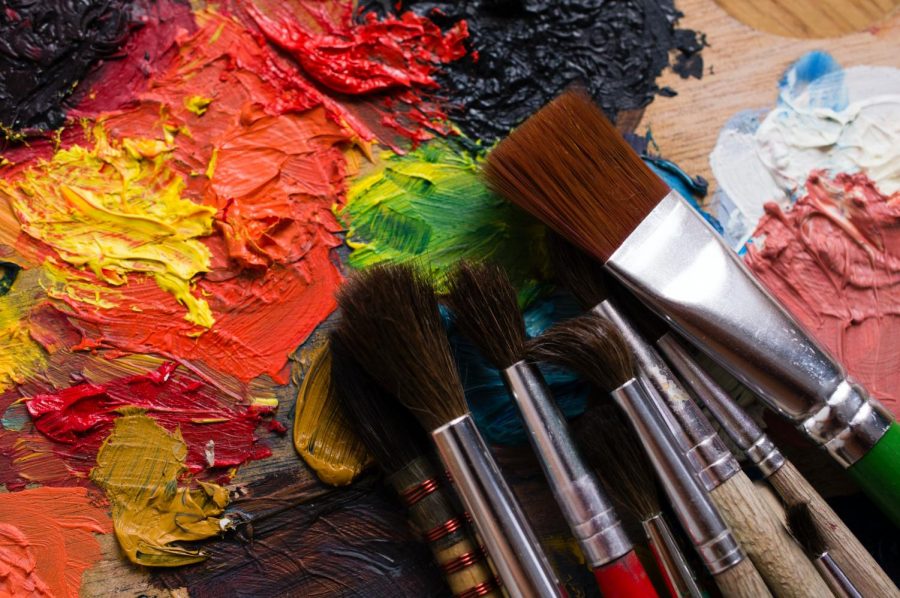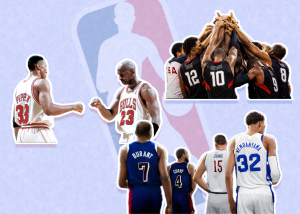The Arts and Humanities Should Be Appreciated Equally to the Sciences
May 4, 2020
In a world where science is a fundamental part of our daily lives, the arts and humanities are falling further down the totem pole of societal recognition. While studies such as psychology, biology, and environmental sciences have opened countless doors for human knowledge, the arts and humanities acknowledge other parts of life today. Humanities such as philosophy, politics, history, and literature investigate human motivation and emotion; these things are vitally important to the understanding of how modern society functions. Arts such as music, writing, and even modern applications such as television and film offer insight into the human condition and encourage values like introspection, which are important for the progression of society. Because of this, humanities and arts need to be recognized and appreciated equally to the sciences.
According to the University of Texas, “One benefit of an education is acquiring fundamental skills. Humanities teaches many fundamental skills such as critical thinking, analysis and creativity.” The study of humanities studies also encourages communication and leadership skills. Critical thinking skills are crucial for understanding and navigating today’s world, especially in a transforming society dominated by revolutionary technology and science. Creativity can contribute to problem solving and efficiency. These skills, among many others, contribute to personal development, and can’t be learned by studying science or math. Humanities equip students with knowledge and experience that is beneficial for their daily lives.
Along with humanities, the arts are another large part of life that sometimes fall into the shadows of STEM subjects. Arts such as drama, television, and music exist in our surroundings every day and are integrated in our daily lives. The arts and creativity today are seemingly neglected and not respected in the way they should be. Creative majors at universities have been dubbed “easy” in comparison to science or math majors, stigmatizing them and giving them bad reputations. However, level of difficulty is altogether subjective, and without the influence of the arts, humans would have no way of expressing, questioning, or investigating the bigger and deeper questions of life, such as what it means to be human. “During my AGATE project I actually realized that STEM and art aren’t separate, but that I can use art to further punctuate scientific research to viewers. Art is something that I can use in conjunction to science and math, and that only further supports those areas. It allows me to think outside the box rather than in a linear fashion, and contributes to how I approach and solve problems,” senior Peyton Kelleher said. Many Miramonte students graduate each year and pursue degrees in humanities and arts, and these degrees should be respected and valued just as highly as a degree in a STEM subject. Instead of being one or the other, both areas of study can be used together. “I think humanities and arts classes have taught me more about life than any science or math class ever could,” senior Catherine Foy said.
Some may argue that the sciences are more fundamentally important in today’s society. However, there should not be a hierarchy of applicable human skills. Although sciences and mathematics are extremely valuable to the world today, and have an incalculable positive impact on modern society, why are they being ranked higher in this hierarchy of skills than others such as creativity and ingenuity, learned from the arts and humanities? Each and every student approaches academics through a different perspective and has distinctive natural skills, so why should a student with an aptitude for math or science be respected more than a student with an aptitude for writing or performing? “Those who believe stem is more important than the arts disregard the benefits art can contribute to stem and vice versa,” Kelleher said. Both of these areas of study should be valued equally.
Each student and subject have different things to bring to the table, along with various messages and skills to contribute to human advancement and innovation. Sciences, humanities, mathematics, and arts should all be valued and respected equally.








